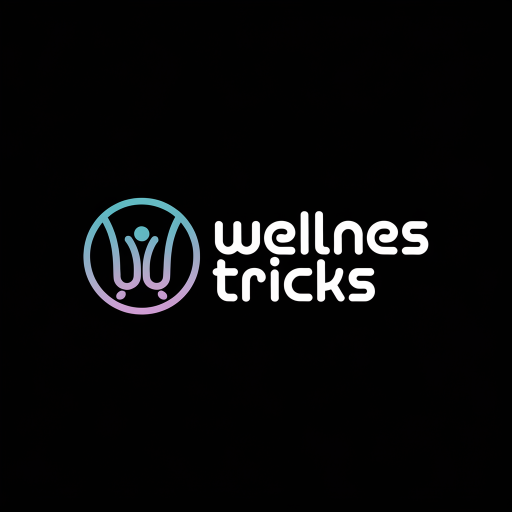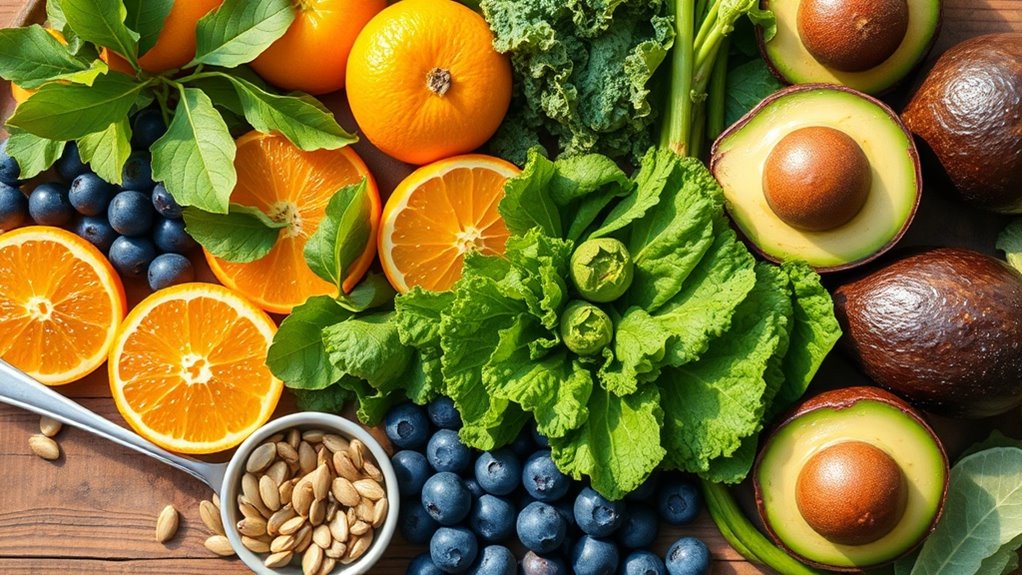The Vitamins I Naturally Get From My Daily Foods
Many people overlook the impact of vitamins from their daily foods on overall health. For instance, vitamin A plays a crucial role in vision and skin health, yet it’s common to underestimate its significance. A balanced intake of whole grains can provide B vitamins essential for energy production. Understanding which foods supply these vitamins can empower your dietary choices. But how can you optimize your meals to ensure you’re getting the essential nutrients your body needs?
Vitamin a Sources From Colorful Fruits and Vegetables
When you incorporate colorful fruits and vegetables into your diet, you’re not just making your meals visually appealing; you’re also boosting your intake of Vitamin A.
Carrots, sweet potatoes, and spinach are prime natural vitamin sources that can enhance your health. These foods contain beta-carotene, which your body converts into Vitamin A, supporting vision, immune function, and skin health effectively. Additionally, a diet rich in fiber intake can further promote overall gut health, facilitating the absorption of essential nutrients including vitamins.
The Importance of B Vitamins in Whole Grains
Although many people focus on vitamins A and C, B vitamins found in whole grains play a crucial role in your overall health.
These vitamins are essential for energy production, brain function, and red blood cell formation. Consider incorporating whole grains into your diet for maximum benefits:
- B1 (Thiamine) supports metabolism.
- B3 (Niacin) aids in skin health.
- B9 (Folate) is vital for DNA synthesis.
Boosting Immunity With Vitamin C-Rich Foods
While B vitamins in whole grains are vital for energy and brain function, boosting your immunity is another critical aspect of your overall health.
Vitamin C plays a key role in enhancing your immune response by supporting white blood cell function and acting as a powerful antioxidant. Adequate sleep and nutrition are essential to maximize vitamin C’s positive effects on your immune system.
Incorporate citrus fruits, bell peppers, and broccoli into your meals for an effective immunity boost.
Natural Sources of Vitamin D in Your Diet
To thrive, your body needs adequate levels of vitamin D, which plays a crucial role in calcium absorption and bone health.
You can incorporate natural sources of vitamin D into your diet through:
- Fatty fish like salmon and mackerel
- Fortified foods such as milk and cereals
- Egg yolks
Including these foods ensures you support your overall health effectively.
The Role of Vitamin E in Nuts and Seeds
Vitamin D supports bone health, but you shouldn’t overlook the important role of other nutrients like vitamin E, especially found in nuts and seeds.
Vitamin E acts as a powerful antioxidant, protecting your cells from oxidative stress. Including foods like almonds and sunflower seeds in your diet can boost your vitamin E intake, supporting immune function and skin health effectively. Additionally, incorporating omega-3 rich foods like walnuts can further enhance your overall nutritional profile.
Your body benefits from this essential nutrient.
Exploring Natural Sources of Vitamin K in Leafy Greens
Leafy greens are a powerhouse of essential nutrients, with vitamin K being one of the most crucial for overall health. Including these in your diet can significantly boost your vitamin K levels.
Consider these top sources:
- Kale: Rich in vitamin K1, promoting bone health.
- Spinach: Offers high levels of vitamin K, essential for blood clotting.
- Swiss chard: Packed with nutrients, supporting cardiovascular health. Additionally, leafy greens are powerful anti-inflammatory foods that contribute to overall well-being.

